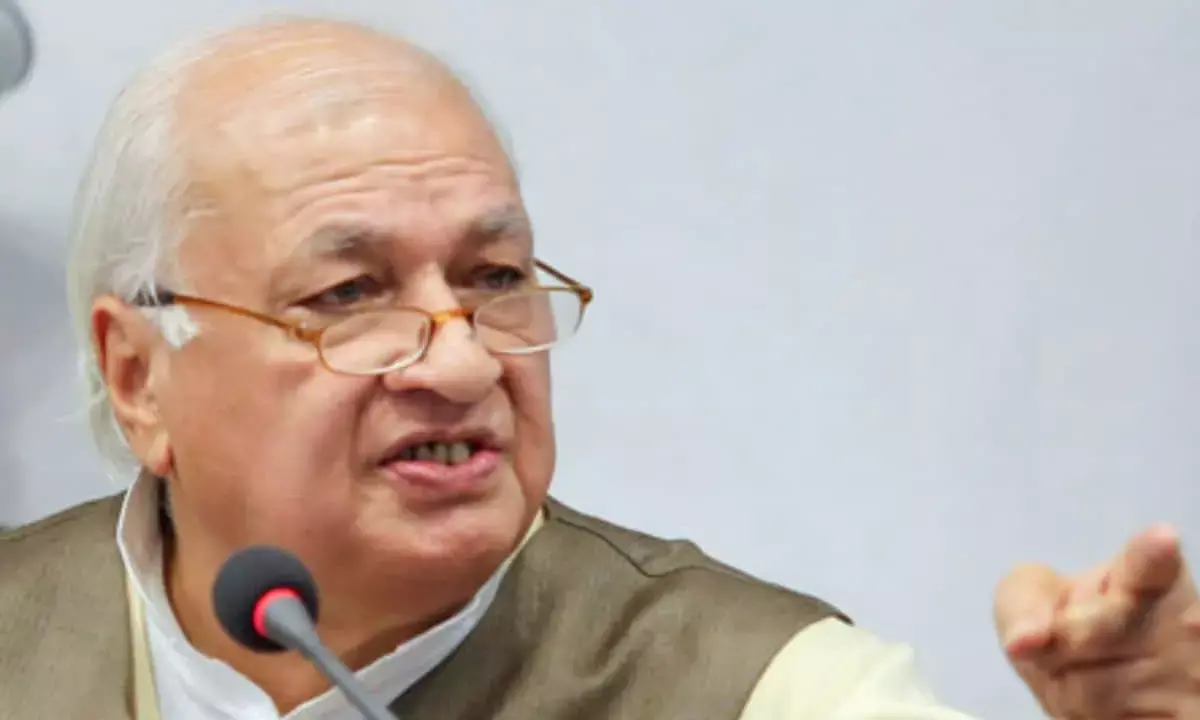Conflict Between Governors and Govts - Kerala, Telangana, Tamil Nadu
Weakens state-centre relations

It is extremely unfortunate when the office of a Governor runs into controversy in the state where he or she is appointed. For it queers the pitch to a point where it impacts on harmony between the centre and the state that the Governor is meant to ensure. And instead creates bad blood to a point where the ceremonial office is dragged into politics, and a democratic mess created for no real reason. This has happened in the past when state governments run by opposition parties have been dismissed by the central government (read President) on the basis of the Governors 'report, and is happening again.
The clash between Governors and the ruling parties is intensifying in three states - Kerala. Telangana, and Tamil Nadu. It is not a coincidence that the three states are run by opposition parties who have not been very supportive of the ruling BJP at the centre. In Kerala the Left has had an almost constant run-in with Governor Arif Mohammad Khan and is now planning to bring in an Ordinance to remove him as the Chancellor so that it could appoint choice academics as vice chancellors of universities in the state. The pro-active Governor has let it be known as per media reports that he will not concur and move the President if need be to ensure that such an ordinance is blocked. Governor Khan was in the news just recently for expelling journalists representing two major news channels in Kerala from his press conference, refusing to speak to the media until they left. This had led to protests by journalists in the state. The Congress party in Kerala is however, not likely to support the Ordinance given the bitter rivalry between the two sides.
In Tamil Nadu the ruling DMK has secured the support of its allies to meet President Droupadi Murmu and demand the recall of the TN Governor RN Ravi. The confrontation between the two sides have sharpened with the state government issuing a memorandum saying that the Governor was "unfit" to hold office as he was refusing to clear important bills and stalling government business. The memorandum as per media reports has further said that the Governor has "violated" the oath taken by him under the Constitution and has been "instigating communal hatred" that in turn is threatening peace and tranquility. The memorandum further adds, "some might even consider his statements seditious as they attempt to bring hatred or contempt or excite disaffection towards the government's establishment by law."
The differences between Telangana Governor Tamilisai Soundararajan and the TRS government also seem to be reaching the point of no return. The state government has accused Raj Bhawan of being involved in what has come to be known as the Poachgate controversy, and her refusal to clear the Telangana Universities Common Recruitment Board Bill. The Governor has now retaliated by maintaining that the TRS government is tapping her phone. "I get a feeling that my phone is being tapped," she said.
Democracy and progress are linked to a harmonious relationship between the Governor and the government of the state. Without this, there is acrimony, accusations and bad blood that really amounts to a centre-state conflict on an almost daily basis. Governors are centrally appointed, and represent the President of India and hence the central government. Their presence in the states is ceremonial to some extent, and practical as they serve as the bridge between the state governments and the centre. And are in place to harmonise relations, and strengthen federalism through strong and solid centre-state relations. They are not in place to weaken this democratic threshold, but to straighten confusions, work for the state even as they work for the centre, and bring learning and knowledge to smoothen the federal path. When this does not happen and Governors use their office to create discord, stop bills, and come in the way of day to day government functioning it weakens institutions and continuous damage can then become irreparable.



